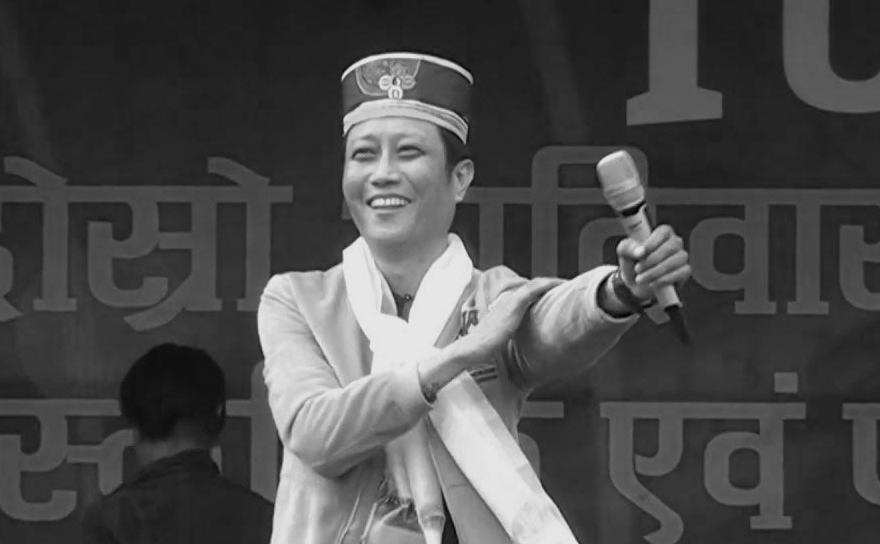
Grief doesn’t arrive all at once it sneaks up on you in waves, long after the world thinks you’ve moved on. For me, that first wave hit nearly six years ago when I lost my older sister, and since then, it’s been an ever-present undercurrent in my life.
She left this world with a peaceful smile as if she knew something I didn’t. Her fragile soul was too gentle for a world that never handled her with the care she needed. I was 13 at the time, and I had no idea how much that moment would change everything.
Our bond
Despite the five-year age gap, we were incredibly close—closer than I have ever seen in any other sister duos. We shared everything, from the smallest secrets to the deepest fears, and I knew her better than anyone else. She wasn’t just my older sister; she was my best friend, my confidante, and my anchor.
Our bond was unique, something I still haven’t seen in other siblings. She leaned on me for comfort, even though she was older. Every morning I had a holiday, she’d ask me to do her hair or apply her kajal before heading out. She loved being pampered, and it didn’t take much to make her happy.
But at the same time, she was sensitive, an overthinker who could be hurt by the smallest things. We all handled her with care, but maybe the world wasn’t gentle enough for her.
She is no more
The day she passed away still feels surreal. It was a Saturday morning, 12:51 am just after midnight. She had been admitted to the hospital two days earlier because she was having trouble breathing. She’d been sick before, so I thought it was like all the other times. But something felt different. My heart was heavy, and I cried a lot without really knowing why. I wasn’t allowed to visit her in the hospital because of school, and before I knew it, she was gone.
When we rushed to the hospital in the early hours, I saw my father outside, looking at the sky, tears running down his face. Each step towards him felt like the weight of the world had fallen on my shoulders. The words “She is no more” shattered everything I knew, but before I could even process my own grief, everyone around me began telling me that I needed to be strong for my parents. That’s when my life changed. I became the “only” child overnight, and suddenly, the responsibility to hold my family together seemed to fall on me.
I miss her every day
I never really got the chance to grieve for her. My mom kept fainting every time she opened her eyes, and my father, bounded by the idea that men shouldn’t cry, could only show his pain in short, silent tears. I didn’t know what to do. I was just a kid, and yet, everyone kept telling me to stay strong and look after my parents. In trying to do that, I ended up pushing my own grief aside and maybe that was when a 13-year-old girl matured up.
The hardest part was seeing her for the last time. It was around 4 am after they had removed all the wires and tubes. She lay there so still and peaceful, but I couldn’t summon the courage to touch her. I regret that deeply to this day. If I had known then that I could have hugged her, I would have. The guilt of not holding her one last time still lingers with me. I never got to say a proper goodbye, and it haunts me. But what is a proper goodbye anyway? Is there even a way to say goodbye to someone who’s already gone?
These questions stay with me, unanswered, but perhaps there’s no answer that can ever bring comfort in such moments.
Life without her has been strange. I often wonder what things would be like if she were still here. When I see her friends graduate or celebrate milestones, I can’t help but think about the life she would have had. I miss her every day. The word “Kancho,” which she used to call me, still stings. No one else can say it the way she did, and it’s a reminder of the love we shared, but also the emptiness she left behind.
I’m writing this as a reminder of the importance of grieving. For a long time, I pushed down my pain because society made me believe that crying and showing grief would mean I wasn’t strong enough.
A year later, all the emotions I had suppressed hit me like a tidal wave, and I broke down. It was overwhelming, and it became much harder to cope with my loss. The grief that I had postponed caught up with me in a way I wasn’t ready for, and it taught me something important: cry as much as you need, and grieve before it’s too late. Don’t let anyone tell you how to handle your pain.
This story isn’t just about my sister, it’s about letting go of the idea that we always need to be strong. Society may try to forge us into people who don’t cry, and who don’t show their emotions, but that’s not how healing happens.
It’s okay to break down, it’s okay to miss the ones we’ve lost, and it’s okay to feel the weight of their absence every single day. Sharing this is my way of reminding myself and anyone else struggling that grief is a part of love, and we should never feel ashamed for feeling it.

















